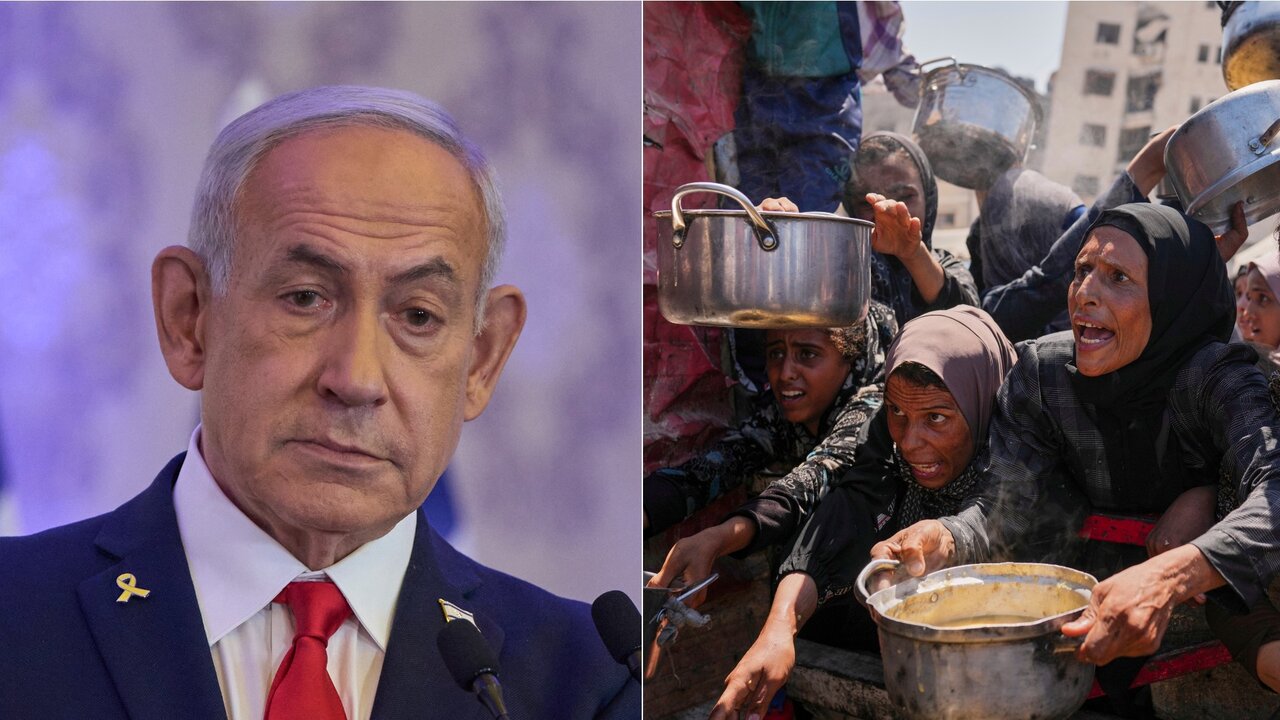Netanyahu’s Gaza plan risks a quagmire with no exit

TEHRAN - Israeli Prime Minister Benjamin Netanyahu’s decision to fully occupy Gaza City—and potentially the entire Gaza Strip—marks a stark escalation in the nearly two-year conflict with Hamas, revealing a deeply troubling disregard for military counsel, humanitarian norms, and regional stability.
The decision was ratified by the security cabinet despite sharp dissent inside the military and growing public unease-the move thus laid bare a hardened stance calculated more on ideological rigidity than practical strategy.
The plan and its contradictions
Netanyahu’s plan, approved after protracted debate and intense cabinet pressure, aims to forcibly evacuate over one million Palestinians from Gaza City by October 7, 2025—coinciding with the two-year anniversary of the Israel-Hamas war in October 2023—and then impose a siege as Israeli forces launch a full ground offensive to seize control of the city.
Yet, this ostensibly militaristic objective is shrouded in contradictions that starkly reveal the fraught nature of Israel’s approach.
On the surface, Netanyahu insists that Israel does not aim to govern Gaza permanently, promising instead to “take control” of the Strip temporarily, establish a security perimeter, and then hand over civilian governance to unspecified Arab forces, explicitly excluding both Hamas and the Palestinian Authority.
This nebulous “handover” plan is politically convenient but utterly impractical, sidestepping the reality that shattering Hamas’s control leaves a governance vacuum over nearly two million people, for which Israel cannot plausibly disclaim responsibility.
The military’s warnings—prominently voiced by Israeli Armed Forces Chief of Staff Eyal Zamir—highlight this paradox, cautioning that the operation risks plunging Israel into an open-ended occupation and military administration fraught with profound security and ethical liabilities.
Military opposition and political intransigence
The military’s resistance to the plan is not trivial dissent; it underscores the growing gulf between political leadership’s militant maximalism and pragmatic security assessments. Zamir and other top officers warn that the operation endangers the hostages’ situation, imperils Israeli soldiers with complex urban warfare, and aggravates an already fatigued military stretched thin after years of conflict in Gaza.
Nevertheless, Netanyahu’s cabinet, dominated by hawkish and ultranationalist ideas, ignored this advice, some even vehemently opposing any humanitarian relief to the Palestinians or any ceasefire negotiations. Such ideological rigidity reveals a government willing to discard operational prudence and international norms for a scorched-earth strategy to wipe out Hamas at whatever cost.
Humanitarian crisis
Humanitarian consequences are dire and predictable. Gaza City, already destroyed by ongoing bombardment, is now seeing the forced displacement of roughly one million civilians into confinement in overcrowded camps and southern areas that are not set up to accept such a sizable number.
Pre-offensive images of starvation and malnutrition depict a rather ugly scene of a population wedged between siege and siege, and threatened with absolute termination of even the most basic of services being provided.
International organizations and the United Nations have urgently warned of “catastrophic consequences” as Israel continues to obstruct humanitarian aid flows. Despite these warnings, Israel’s security cabinet approved measures aiming at Gaza’s “demilitarization” and a governance shift—without credible plans to prevent mass civilian suffering or ensure protection for displaced persons.
This strategy fundamentally overlooks and aggravates Gaza's profound humanitarian crisis, effectively weaponizing civilian displacement and starvation in pursuit of military objectives. Statements from Gaza residents reflect this bleak reality: “There is nothing left to occupy,” said one resident, capturing the irreversible devastation and dire human toll the escalation promises.
A risky escalation endangering peace and stability
Politically, Netanyahu’s gambit also sidesteps viable diplomatic pathways, deepening the chasm in Israeli-Palestinian relations and fracturing regional dynamics. By excluding the Palestinian Authority and refusing meaningful engagement with Palestinian political actors, the plan shrinks any possibility of negotiated peace or Gaza’s reintegration under governance.
The ramifications of Israel’s escalation extend well beyond Gaza’s borders. Neighboring countries, particularly Egypt, are likely to face increased pressure at their borders as the conflict drives more refugees toward already strained crossings. This influx risks heightening tensions and complicating Egypt's delicate balancing act between security concerns and humanitarian responsibilities.
Domestically, Israel grapples with growing discord. Public opinion polls increasingly show war fatigue, while protests erupted against the Gaza City occupation plan. Even within the Israeli forces, reservists reportedly resist further deployments under the high-risk operation, signaling cracks in the home front’s cohesion.
Yet Netanyahu’s government clings to a politically driven calculus, reinforced by ultranationalists who reject any negotiations or humanitarian respite, apparently prioritizing ideological victory over sustainable security or peace.
The international response underscores Israel’s diplomatic isolation on this front. While the United States offers guarded support, many Western and regional actors decry the operation’s legality and humanitarian cost.
The UN cautions against violations of international law and urges immediate protection of civilians. Yet these voices have little sway over the current Israeli government’s dogmatic trajectory.
Netanyahu’s plan to forcibly occupy Gaza City and expand control over the Gaza Strip reflects a perilous escalation shaped more by ideological intransigence and political survival than strategic reason.
By dismissing military and humanitarian warnings, the Israeli leadership risks trapping itself in a protracted occupation that inflames regional instability, deepens human suffering, undermines any prospects for peace, and, more critically, compels Israel to become further entangled in the Gaza quagmire.
Leave a Comment